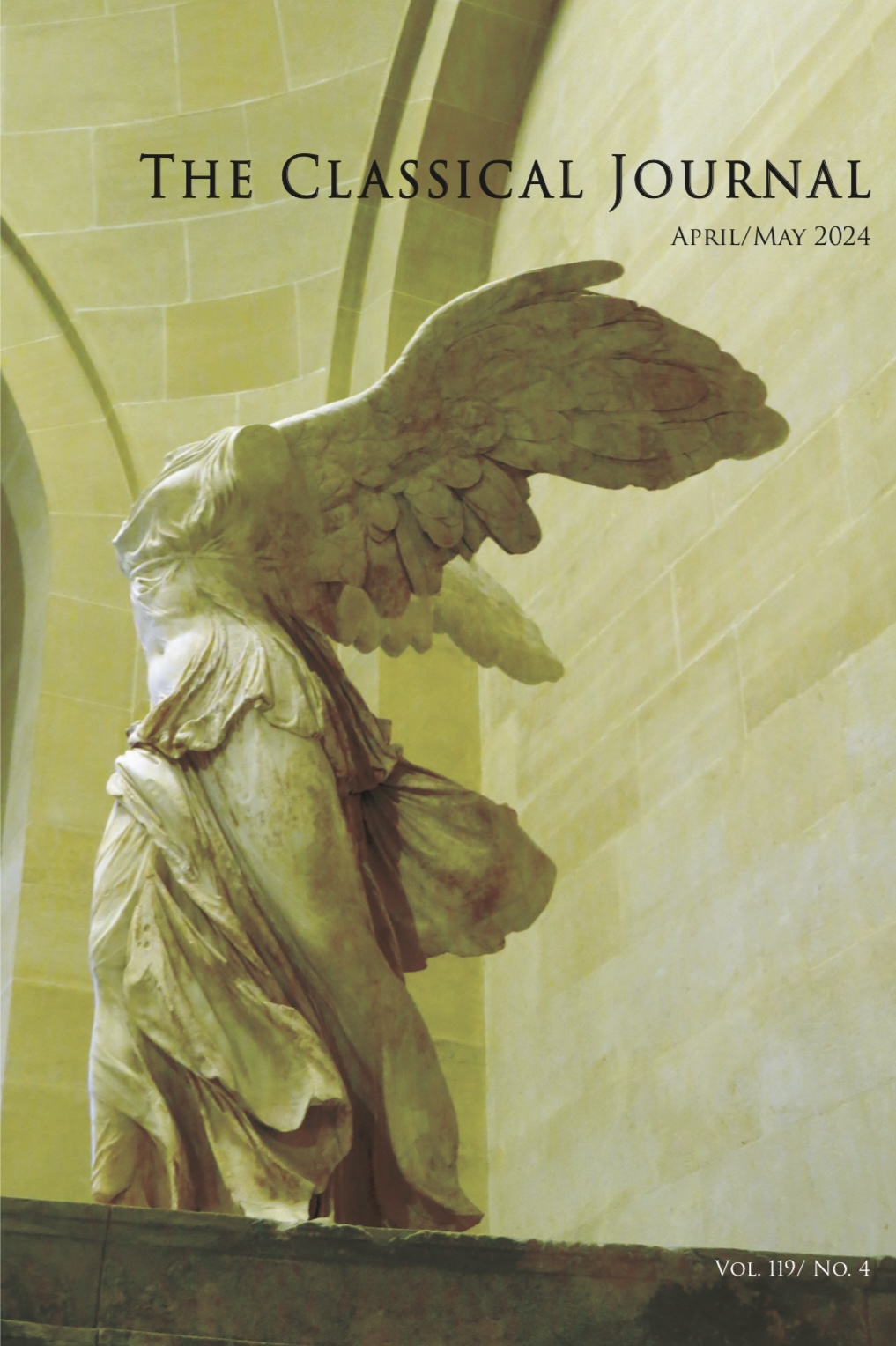The following articles are contained in CJ
108.2
Abstracts of Articles
HOMER ON KITHAIRON: DRAMATIC AND NARRATIVE REPRESENTATION IN THE BACCHAE
This paper analyzes the Bacchae against the backdrop of ancient poetic theory which has recognized the close relations between tragedy and Homeric epic and singled out tragic messenger-speeches as the prime point of contact between them. The second messenger-speech, we argue, explores the tension between dramatic and narrative representation: highly dramatic in its structure, it encompasses complex allusions to Iliad 14 and Odyssey 6 which serve specific purposes but also epitomize the whole of Homeric epic. Thus, Euripides puts on display both the Homeric pedigree of tragedy and the interdependence of acting and telling in drama.
TYPICALLY UNIQUE: SHARED STRATEGIES IN CICERO'S PRO ARCHIA AND PRO BALBO
Cicero claims to use a "new mode of speaking" early in his Pro Archia, a statement which has
contributed to a common acceptance of the exceptionality of the speech - particularly its
celebration of the liberal arts - in relation to the rest of the Ciceronian corpus. But
innovation in ornatus notwithstanding, a comparison with Cicero's other extant speech on citizenship,
the Pro Balbo, reveals that the type and arrangement of arguments within the Pro Archia (the
inventio and dispositio), including Cicero's use of encomium, can be and are repeated on behalf of
a defendant with no connection to poetry. This repetition implies that Cicero's approach to the defense
in Pro Archia is not unique, but is, like other Ciceronian oratory, fundamentally
influenced by the charge against his client.
MERCURY IN THE MIDDLE: THE MANY MEANINGS OF (MEDIUS) SERMO IN LATIN
In this paper, I argue that previous studies of sermo cannot explain the range of its
linguistic meanings or its value in Roman culture more generally. In contrast, by defining
this word in imagistic terms it is possible to provide a unified explanation not only for
its polysemy between monologic and dialogic interpretations, but also for its association with
the god Mercury. What's more, I show that the symbolic sameness of sermo and Mercury underlies
a systematic "slippage" of meaning between these signs, as an analysis of the idiom medius sermo
demonstrates. Finally, a discussion of Vergil's Aeneid illustrates how Latin authors can utilize
such conceptual elisions in elaborating literary themes.
Forum: DON'T SKIP THE METER! INTRODUCING STUDENTS TO THE MUSIC OF ROMAN COMEDY
With a minimum of class time, teachers of Roman comedy at all levels can help their students gain an
appreciation of the genre's meter and music by establishing and discussing regularly the distinction
between unaccompanied iambic senarii and all other meters, pointing out and discussing changes of meter,
singing Plautus and Terence's lyrics, getting students accustomed to the trochaic septenarius and introducing
the iambic septenarius and the iambic octonarius.


